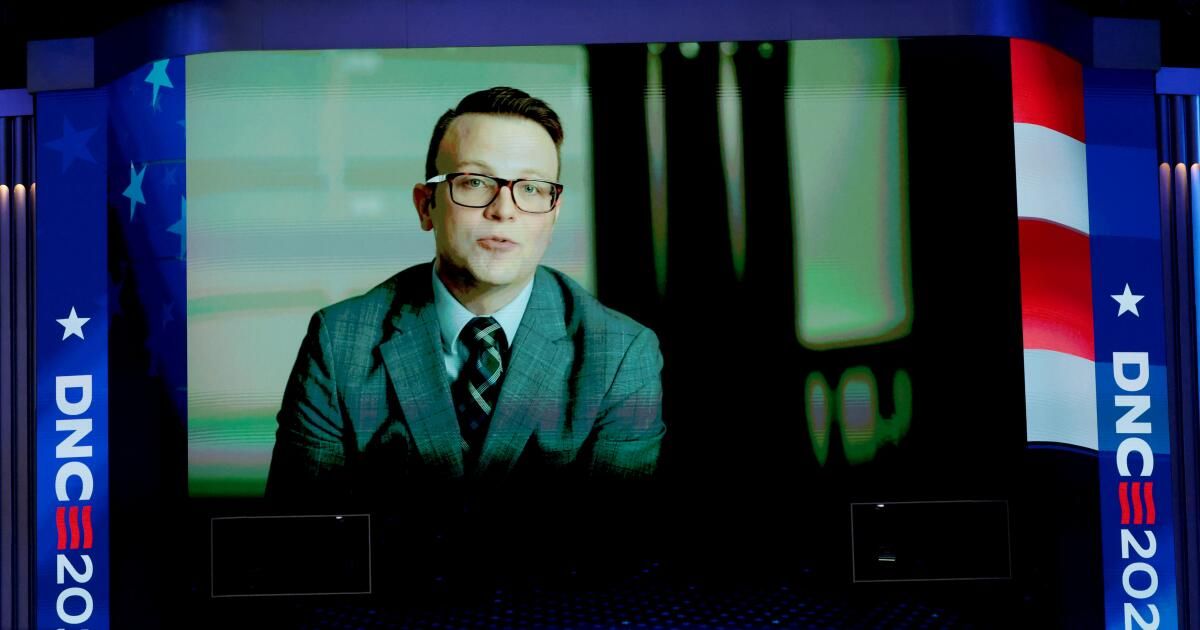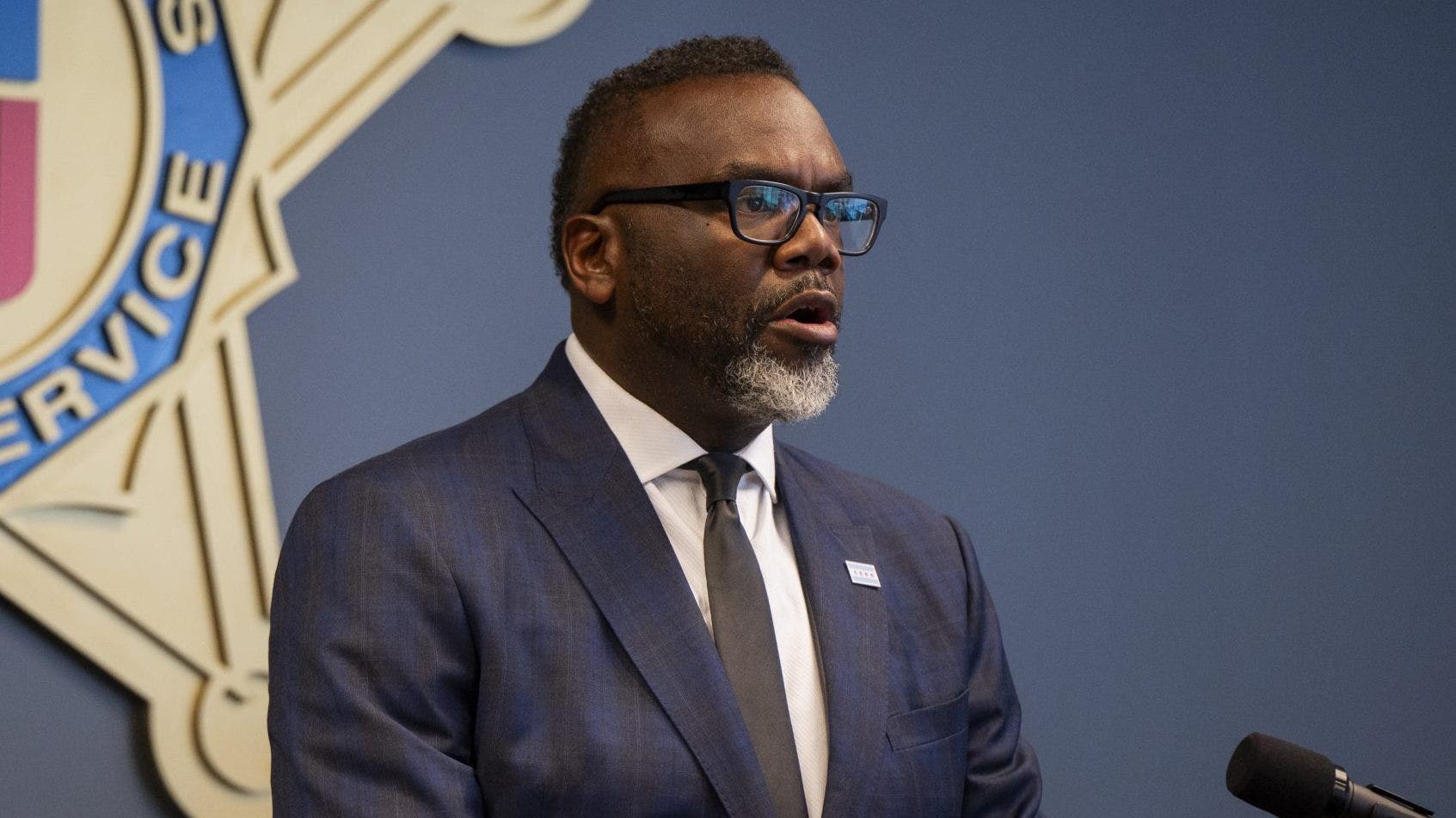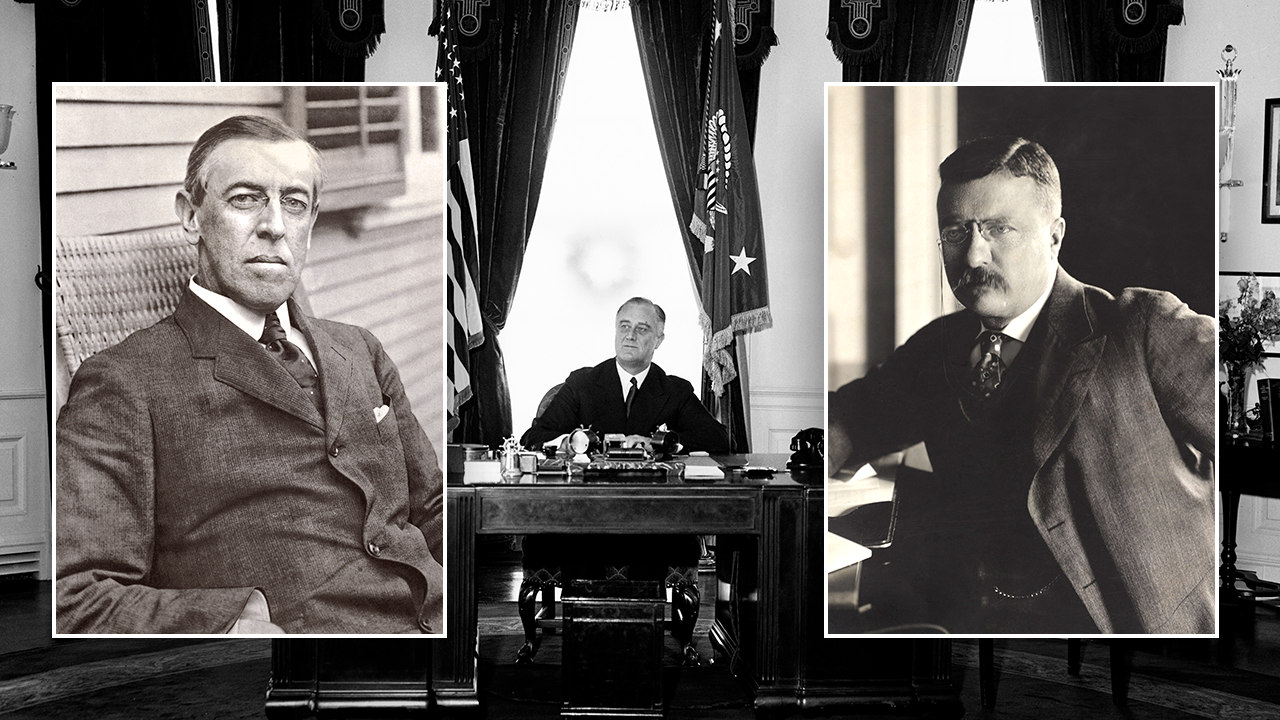In a video intended to help introduce vice presidential candidate Tim Walz to a national audience ahead of his speech at the Democratic National Convention on Wednesday night, a handful of students from his years as a high school teacher praised him.
One called him “jovial,” another “attractive,” and another “a big part” of the local community.
For Jacob Reitan, Walz was the teacher who stood by him against bullies during one of the most difficult chapters of his adolescence, when he came out as gay just before his senior year of high school a quarter-century ago, in 1999.
“When I decided to come out as gay, we created the Gay Straight Alliance,” said Reitan, now a 42-year-old lawyer. “Tim Walz was the faculty advisor.”
The decision by Democrats (and Vice President Kamala Harris’s presidential campaign) to include Reitan and other references to Walz’s staunch support for LGBTQ+ rights was, in some ways, a no-brainer. Queer voters number in the millions, and a politician with a decades-long record of support would be seen by many of them (and many other liberals) as a positive.
Still, the decision was also challenging: It doubles down on the Democratic ticket’s queer alliance at a time when Republicans are pushing an anti-LGBTQ+ agenda, criticizing Walz for her legislative record of supporting queer rights and suggesting she is too progressive for the average American voter.
In a signature comment, former President Trump recently criticized Walz for being “very pro-transgender.”
In interviews with The Times, former LGBTQ+ students of Walz said their support embodies his simple commitment to justice and kindness, and against bullying and injustice.
When Walz took the DNC stage Wednesday night, he expressed many similar ideas.
“That family down the street may not think like you, may not pray like you, may not love like you, but they are your neighbors, and you take care of them and they take care of you,” Walz said. “They all belong here.”
Reitan said in an interview that Walz and his wife, Gwen — also a popular teacher at Mankato West High School in Mankato, Minnesota — had been pointed out to him as LGBTQ+ allies when he was a younger student. He had Gwen Walz as an English teacher and recalled her telling him and his classmates on the first day of school that her classroom was a “safe space” for gay students.
Later, Reitan experienced bullying at school and decided to form the Gay and Straight Alliance, not just for himself but for future LGBTQ+ students at the school. The principal recommended Walz as a faculty advisor and Reitan said he immediately recognized the importance of having the backing of the school’s football coach. Gwen Walz’s support was also invaluable.
“The concept of Tim being the advisor was a product not only of his support, but also of the image that it implied,” Reitan said.
The fact that the Walzes were willing to come forward as they did — especially at “a different and not easy time for gay people” — demonstrated “the character they have as individuals,” Reitan said.
“They were a gift to the students of West High School. They have been a gift to the state of Minnesota,” he said. “And I am thrilled that the nation will have the opportunity to meet them both.”
Since choosing Walz as her running mate, Harris has seemed happy to highlight his gay-friendly past and his advice to the Gay Straight Alliance.
“At a time when it was difficult for LGBTQ students to be accepted, Tim knew what message it would send if a football coach got involved,” Harris said at a campaign rally, to raucous applause. “And as students have said, he made school a safe place for everyone.”
In her own video Wednesday night, Gwen Walz talked about her husband teaching for 15 years, helping lead the school's football team to a state championship and teaching students “that we're all in this together.”
She said he agreed to be an advisor to the Gay Straight Alliance “because he knew the impact of having a football coach involved,” and that he “inspired his students” and “changed lives.”
After Walz was elected to Congress in 2006, he continued his support of LGBTQ+ rights: He backed the right to same-sex marriage, which was not affirmed nationally until a Supreme Court ruling in 2015, and called for the repeal of the federal “don’t ask, don’t tell” policy, which forced gay and lesbian service members to hide their sexuality or face dismissal from the U.S. military.
Walz continued to support queer rights as governor. He signed an executive order protecting transgender people’s access to gender-affirming health care in Minnesota. He also signed two important laws: one banning discredited conversion therapy practices that aim to change or suppress a person’s sexual orientation or gender identity; the other protecting transgender people and their families from subpoenas, arrest warrants, and extradition requests from other states related to receiving gender-affirming care in Minnesota.
At a California delegation breakfast at the Democratic National Convention on Wednesday, Equality California Executive Director Tony Hoang praised Walz as “a person who has been there for LGBTQ youth since the ’90s,” and said he and Harris deserve the votes of LGBTQ+ people.
Seth Elliott Meyer, 38, who is queer, is another former student of Walz. By the time he arrived at Mankato West, his sister and brother had already had Walz as a teacher and coach, and he had heard about how great he was. But he wasn’t convinced.
“I had heard about his reputation as a hunter, a coach and a social studies teacher, and I thought, ‘Wow, that doesn’t seem like the kind of guy I like at all,’” Meyer said in an interview, laughing. As “a feisty, punk rock 14-year-old,” hunting and football weren’t his thing.
It wasn't until Meyer had Walz as a history teacher her junior year, in 2002 and 2003, that she realized what all the fuss was about, she said, when Walz “won me over with his unbridled kindness and fairness.”
“He was one of those teachers who wanted everyone to feel included, involved and validated,” Meyer said.
Meyer tries to remember those lessons today, he said, even as he mentors his own students at the Atlanta school where he now teaches and serves as an adviser to the Gay Straight Alliance.
Times staff writer Seema Mehta contributed to this report.












